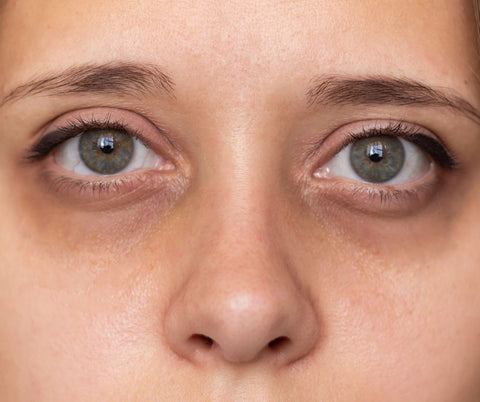5 Telltale Signs You're Not Getting Enough Sleep and How to Fix It
5 Telltale Signs You're Not Getting Enough Sleep and How to Fix It

In today's fast-paced world, getting enough sleep often takes a back seat to our busy schedules and endless to-do lists. However, skimping on sleep can have serious consequences for our health and well-being. From dark circles under the eyes to weight gain, the signs of sleep deprivation are not only noticeable but can also impact every aspect of our lives. In this blog post, we'll explore five common signs that you're not getting enough sleep and provide practical tips for improving your sleep quality.

Dark Circles Under the Eyes:
One of the most visible signs of sleep deprivation is the appearance of dark circles or bags under the eyes. Lack of sleep causes blood vessels to dilate, leading to darkening of the delicate skin under the eyes. Not only do dark circles make us look tired, but they can also contribute to a dull complexion and premature aging.
Tip: Combat dark circles by prioritising quality sleep. Aim for 7-9 hours of sleep each night and establish a consistent bedtime routine. Additionally, consider using an eye cream containing ingredients like vitamin C and caffeine to brighten and depuff the under-eye area.

Difficulty Concentrating:
Sleep plays a crucial role in cognitive function, including memory, attention, and decision-making. When we don't get enough sleep, our ability to concentrate and focus diminishes, making it harder to perform tasks efficiently and effectively.
Tip: Improve concentration by practicing good sleep hygiene habits, such as avoiding caffeine and electronic devices before bedtime. Create a conducive sleep environment by keeping your bedroom cool, dark, and quiet. If you're feeling sluggish during the day, take short breaks to stretch or go for a brisk walk to re-energise your mind and body.

Irritability:
Ever notice how you're more prone to irritability and mood swings after a restless night? Sleep deprivation can take a toll on our emotional well-being, leading to increased feelings of irritability, frustration, and stress. When we're sleep-deprived, our brains become more reactive to negative stimuli, making it difficult to regulate our emotions.
Tip: Manage irritability by prioritising self-care activities and stress-reduction techniques. Practice mindfulness meditation, deep breathing exercises, using aromatherapy oils or yoga to promote relaxation and emotional balance. Additionally, make time for activities that bring you joy and fulfillment, whether it's spending time with loved ones, pursuing hobbies, or enjoying nature.

Frequent Yawning:
Yawning is often seen as a sign of tiredness, but did you know it's also a physiological response to sleepiness? When we yawn, our bodies take in a deep breath of air, helping to increase oxygen flow to the brain and regulate body temperature.
Tip: Combat excessive yawning by addressing underlying sleep issues. Establish a consistent sleep schedule and create a bedtime routine that signals to your body it's time to wind down. Limit exposure to blue light from screens before bedtime and avoid stimulating activities that can interfere with sleep.

Weight Gain:
Sleep and metabolism are closely linked, and inadequate sleep can disrupt hormonal balance and appetite regulation, leading to weight gain over time. Research has shown that sleep-deprived individuals are more likely to crave high-calorie foods, experience increased hunger levels, and have a slower metabolism.
Tip: Support weight management efforts by prioritising quality sleep and adopting a healthy lifestyle. Aim for a balanced diet rich in fruits, vegetables, lean proteins, and whole grains, and incorporate regular physical activity into your daily routine. Additionally, prioritize stress management and relaxation techniques to reduce cortisol levels and promote overall well-being.
Don't underestimate the importance of quality sleep for your health and well-being. By recognising the signs of sleep deprivation and taking proactive steps to improve your sleep habits, you can enhance your physical, mental, and emotional health. Prioritise self-care, establish a bedtime routine, and create a conducive sleep environment to reap the benefits of restorative sleep each night.
Remember, better sleep leads to a better life!












